Sustainability is a crucial consideration for Knorr-Bremse – and that was the case even before the current debate over the consequences of climate change began.
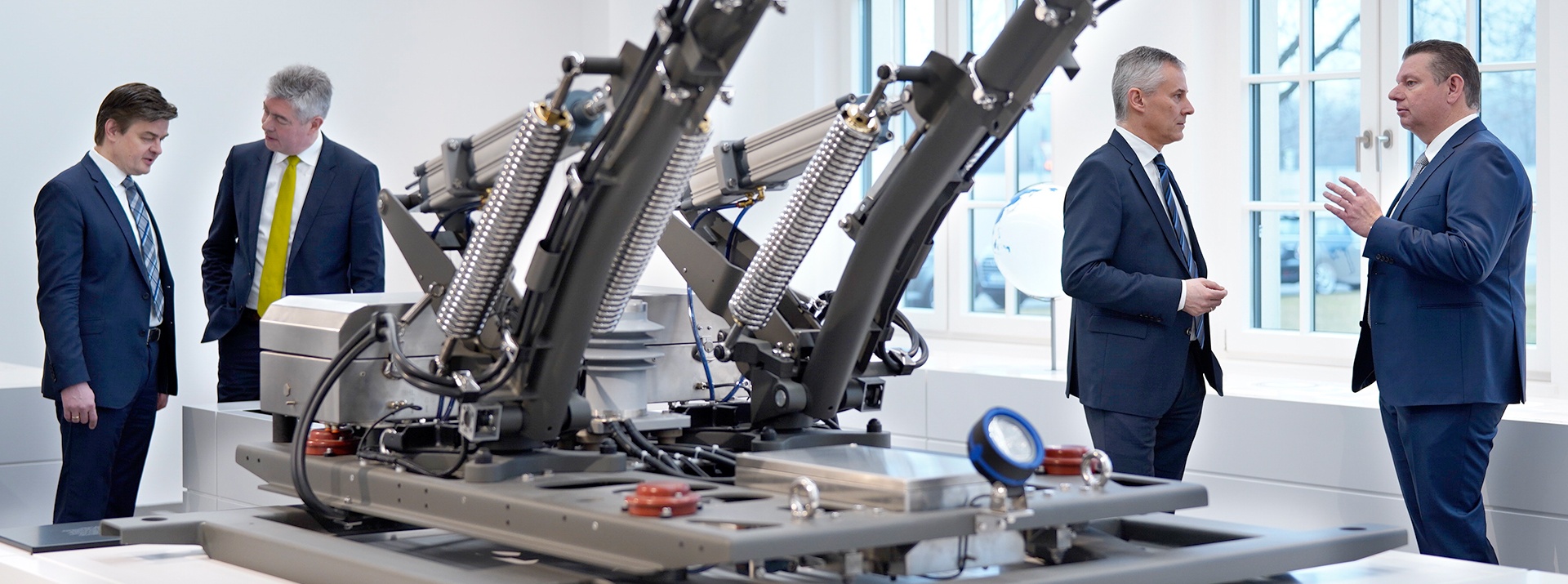
Driving responsibility.
As a supplier of systems for rail and road vehicles, Knorr-Bremse is at the heart of the global drive toward sustainable mobility. In keeping with this key role, high standards of environmental performance, resource conservation and social responsibility are central to the group’s strategy. In what follows, the four members of the Executive Board explain why the company is driving this strategy forward.
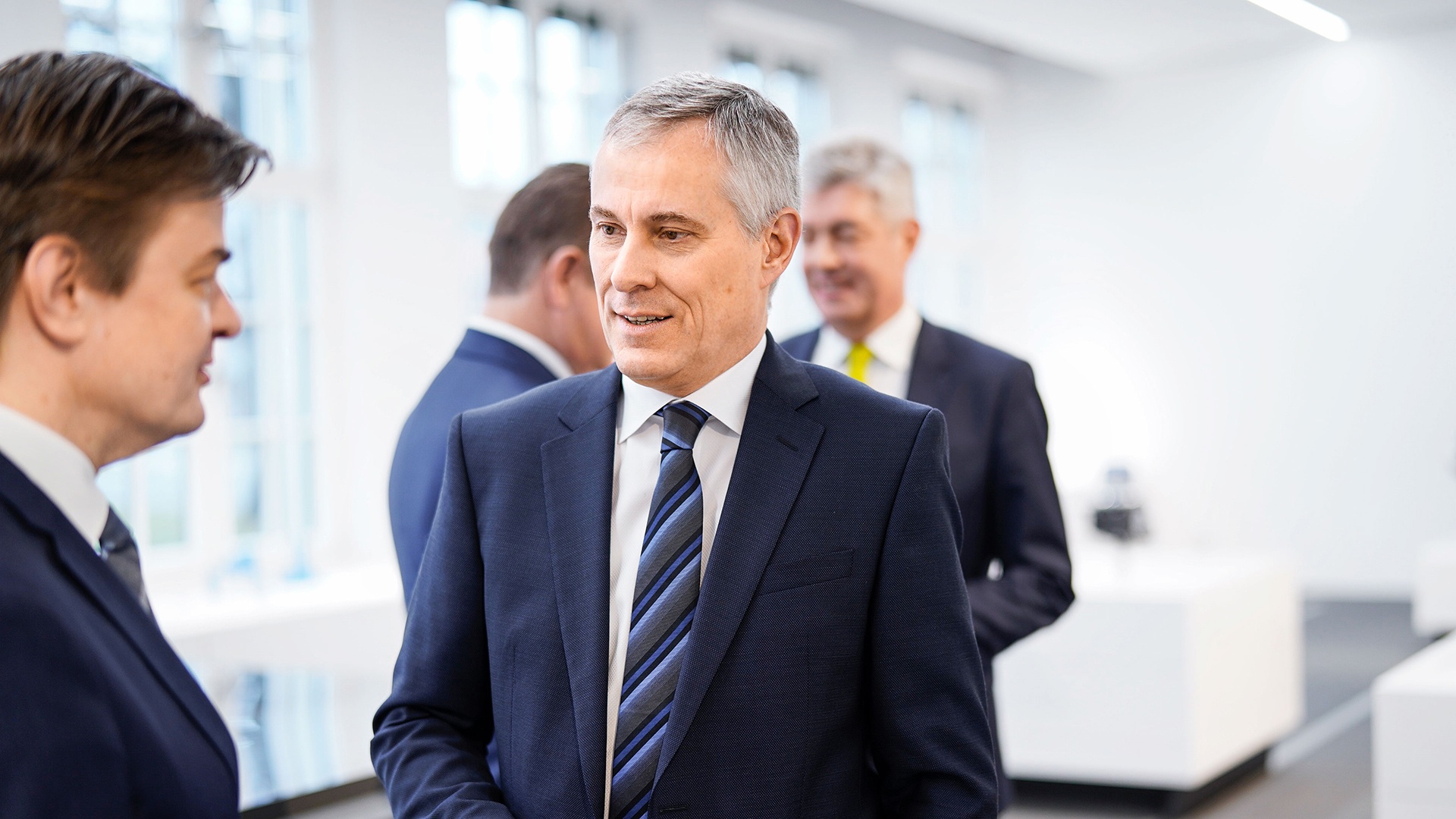
We’re going to be looking at the topics of responsibility and sustainability. In recent months the COVID-19 pandemic has added a new dimension to both of these areas. What does that mean for Knorr-Bremse?
Bernd Eulitz: COVID-19 is providing an impressive demonstration of just how closely interlinked our globalized world really is. We can’t simply pull up the drawbridge and declare a state of isolation. This applies both to the challenges of the current pandemic and to the issue of climate change. And here we take responsibility for our actions. For us at Knorr-Bremse the health of our employees is paramount and something for which we are directly responsible. Within our sphere of influence, we are making every effort to pilot our employees and our company as safely as possible through these troubled times. One aspect of this involves dealing with new situations as they arise every day in the current pandemic. In the longer term, however, assuming responsibility also means fundamentally assigning even greater importance to responsibility and sustainability in all that we do – in the interests of our employees and shareholders, our environment and our business partners. We need to be more mindful in the way we deal with one another and with our environment.
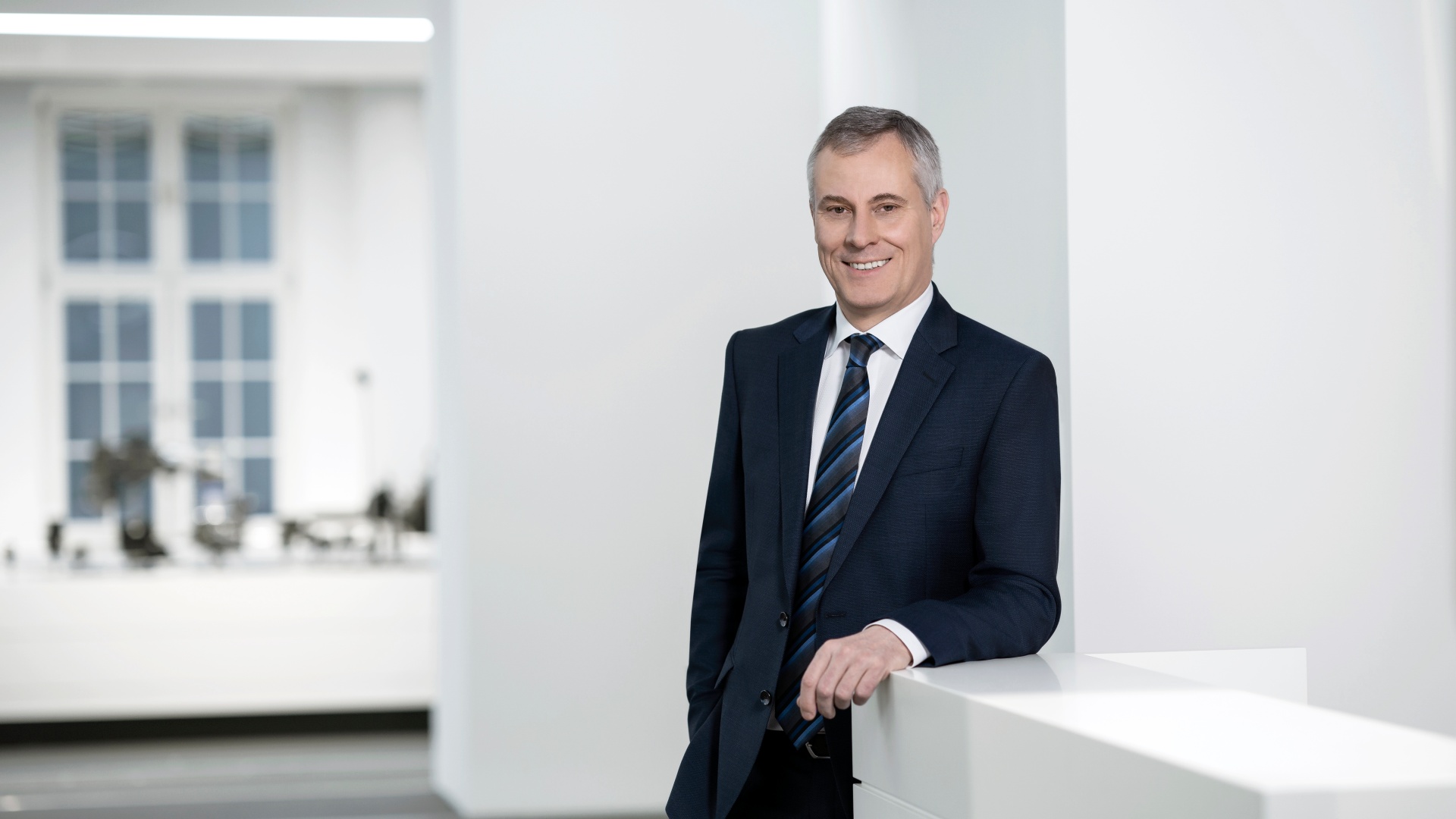
Schoolchildren are taking to the streets, governments are bringing in more stringent environmental legislation, investors are urging industrial corporations to act – the call for sustainability is echoing around the globe. How seriously do you take this issue at Knorr-Bremse?
Bernd Eulitz: Sustainability is a crucial consideration for Knorr-Bremse – and that was the case even before the current political and scientific debate over the consequences of climate change began. Our aim here is to operate both sustainably and profitably, safeguarding the interests of our customers, employees and shareholders equally. The concept of sustainability has been firmly embedded in our corporate strategy for more than ten years – and every year we present a detailed account of our performance in this area in a dedicated sustainability report.
Jürgen Wilder: By its very nature, our Rail division stands for sustainable mobility. Alongside safety and customer benefits, sustainability is a key factor in the ongoing development of our products and processes. Our customers across both divisions expect us to deliver continuous improvements in this area.
Peter Laier: Just as important for our future, too, is the fact that today’s young talents are looking for companies that deal with people and natural resources in a responsible way. This makes sustainability a key attribute for us as an employer, giving us an edge over the competition.Ralph Heuwing: Investors see it exactly the same way. For them, sustainability is a prerequisite for their long-term involvement. Ecology and economy are not opposing forces – climate action can be a highly profitable business and investment. This is something many investors have realized, adapting their portfolios accordingly and demanding greater transparency and verifiable climate action targets from businesses.
Bernd Eulitz: As I see it we are absolutely on the right track here in terms of sustainability. The only point where I think action is required is that we need to communicate our commitment to sustainability and climate action more effectively.
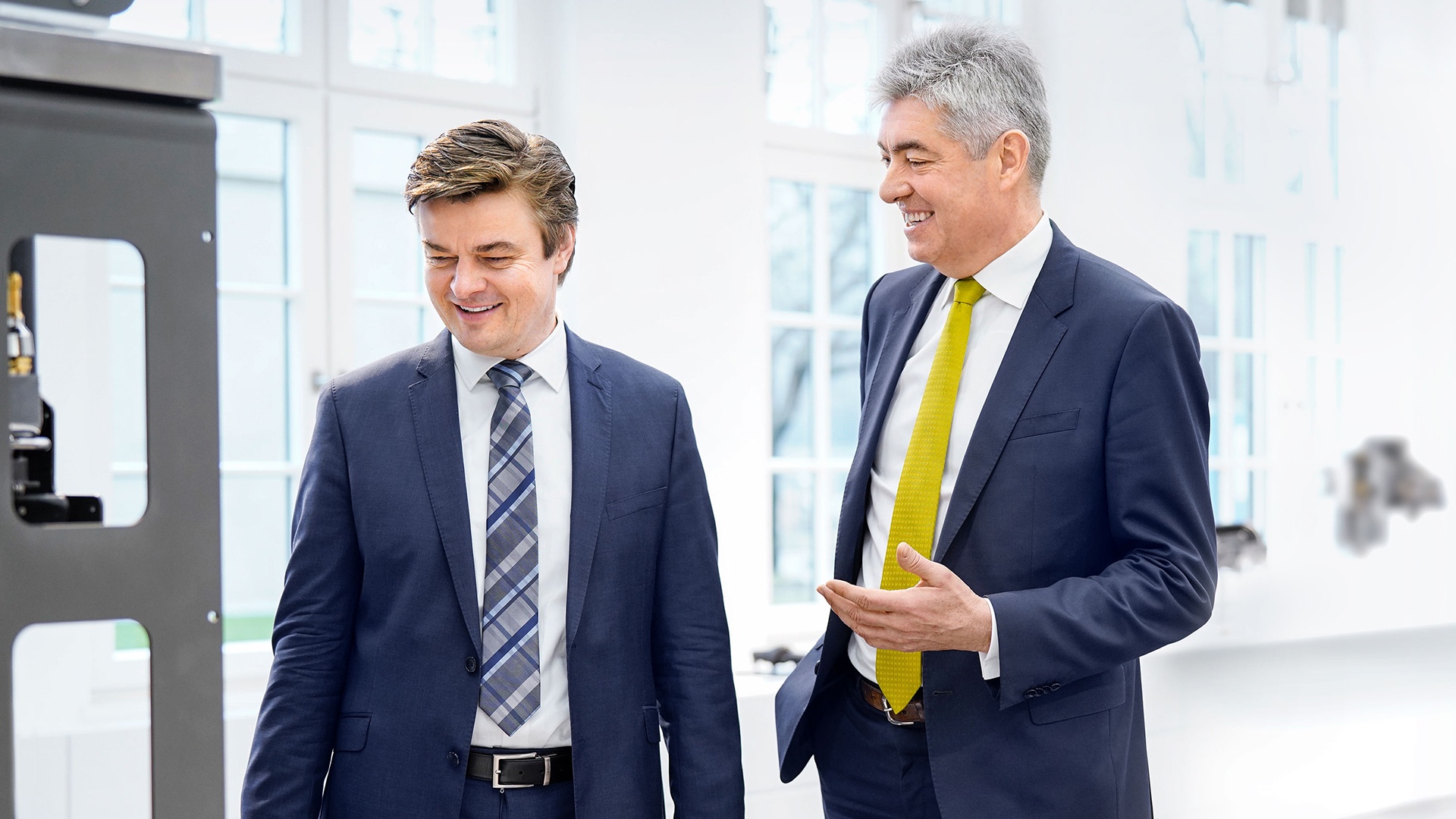
So transparency is key. Why does Knorr-Bremse need to explain its sustainability measures more now than it did in the past?
Ralph Heuwing: Previously, sustainability was one of multiple factors that made up our external image. But today no business can survive in the long term unless it lives out its commitment to the environment, climate action and social standards – and demonstrates this publicly, too.
Peter Laier: Sustainability isn’t a passing trend – as evidenced, notably, by the environmental debate in the automotive sector. Sustainability is what makes a company future-proof – not least because it opens up possibilities for new business models. Think of the innovative products in areas like safety and autonomous driving that also include an element of sustainability. But we need to be open about the fact that this also entails risks: In times of radical change we need to think carefully about which technologies and solutions to back for the long term.
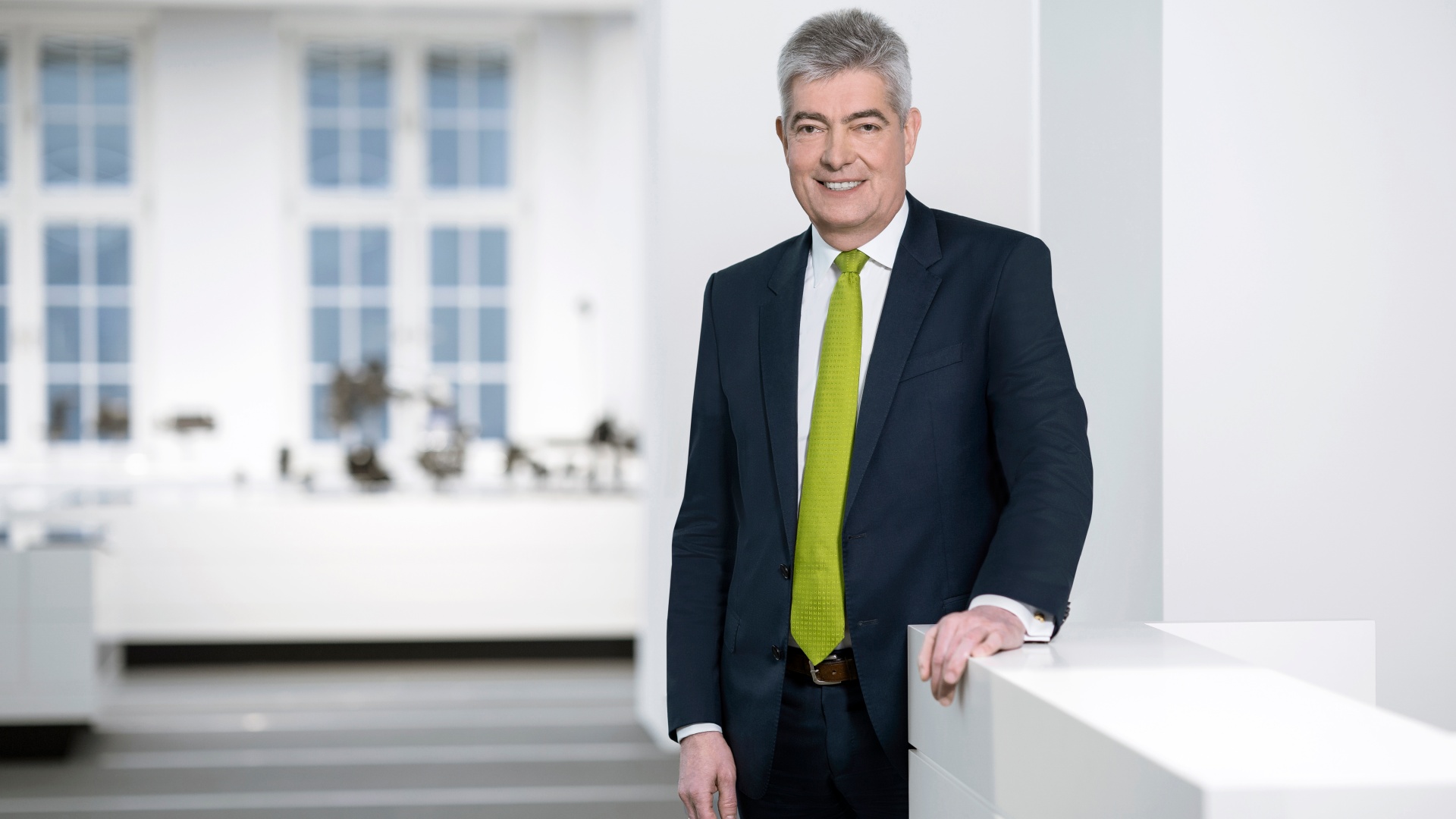
Ecology and economy are not opposing forces – climate action can be a highly profitable investment. This is something many investors have realized, and they’re demanding verifiable climate action targets.
So how sustainable is Knorr-Bremse’s business?
Bernd Eulitz: We supply the transportation sector with rail and commercial vehicle systems. This means that we exert a direct influence on the creation of sustainable logistics for the transportation of goods and people – an eco-friendly form of logistics, with increasingly environmentally compatible and resource-efficient processes, that is gaining ground worldwide. Alongside our classic products like braking systems, our innovative approach to system development plays a key role in helping our customers implement their business models in a more sustainable and resource-efficient way. Increasingly, our industry is part of a global system in which environmental considerations are the decisive success factor.
Jürgen Wilder: The Rail division has an especially important part to play here, because railways, trams and metro systems are key drivers of progress toward climate-friendly mobility. This is not just about developing new systems for vehicles, though, but also about making better use of existing infrastructure. There is still considerable untapped potential here. In a nutshell you could say that every euro of revenue for our Rail division improves the global climate balance-sheet.
Peter Laier: Our customers’ concerns are our concerns, too. The focus is on cutting emissions – of CO2 and nitrogen oxides, for example – and reducing energy consumption. Technological progress is generating solutions capable of delivering new networked transportation systems integrating road and rail. But this calls for significant levels of investment. For individual companies the research and development costs involved are virtually impossible to bear. Which is why we are open to new cross-sector partnerships − and new products.
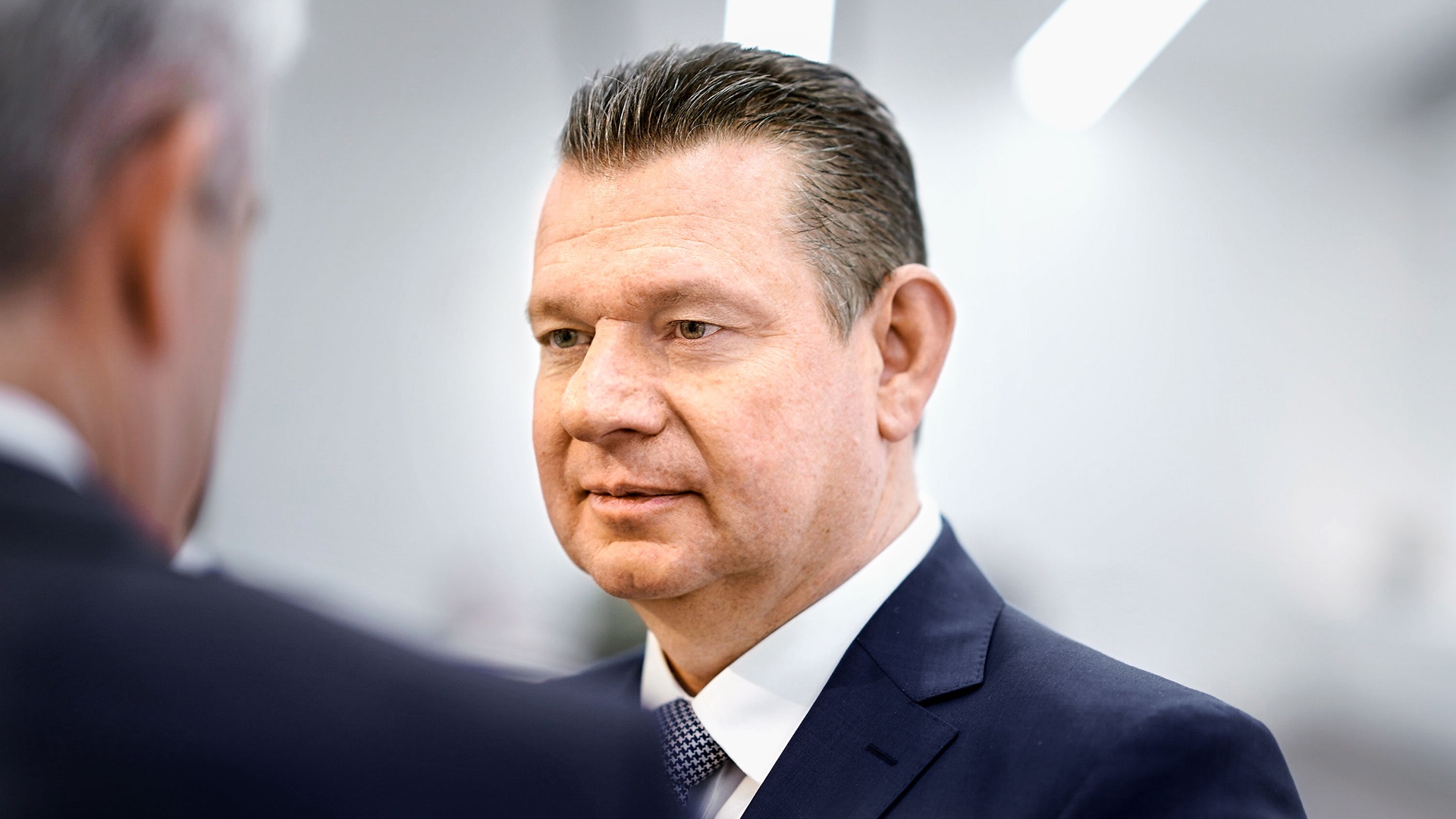
Knorr-Bremse has adopted its own climate strategy. What was the thinking behind this?
Bernd Eulitz: Climate change is one of the most urgent challenges of our time. As a manufacturing group with global value chains, Knorr-Bremse is in a position to actively drive forward climate action. This is why we have set ourselves ambitious targets, aligned with the scientifically validated pathways for limiting global warming to a maximum of 1.5° Celsius degrees, as laid down in the Paris Climate Agreement. Our climate strategy comprises two targets: Firstly, Knorr-Bremse aims to halve its CO2 emissions by 2030, and secondly, we are committed to achieving climate neutrality from 2021 onward.
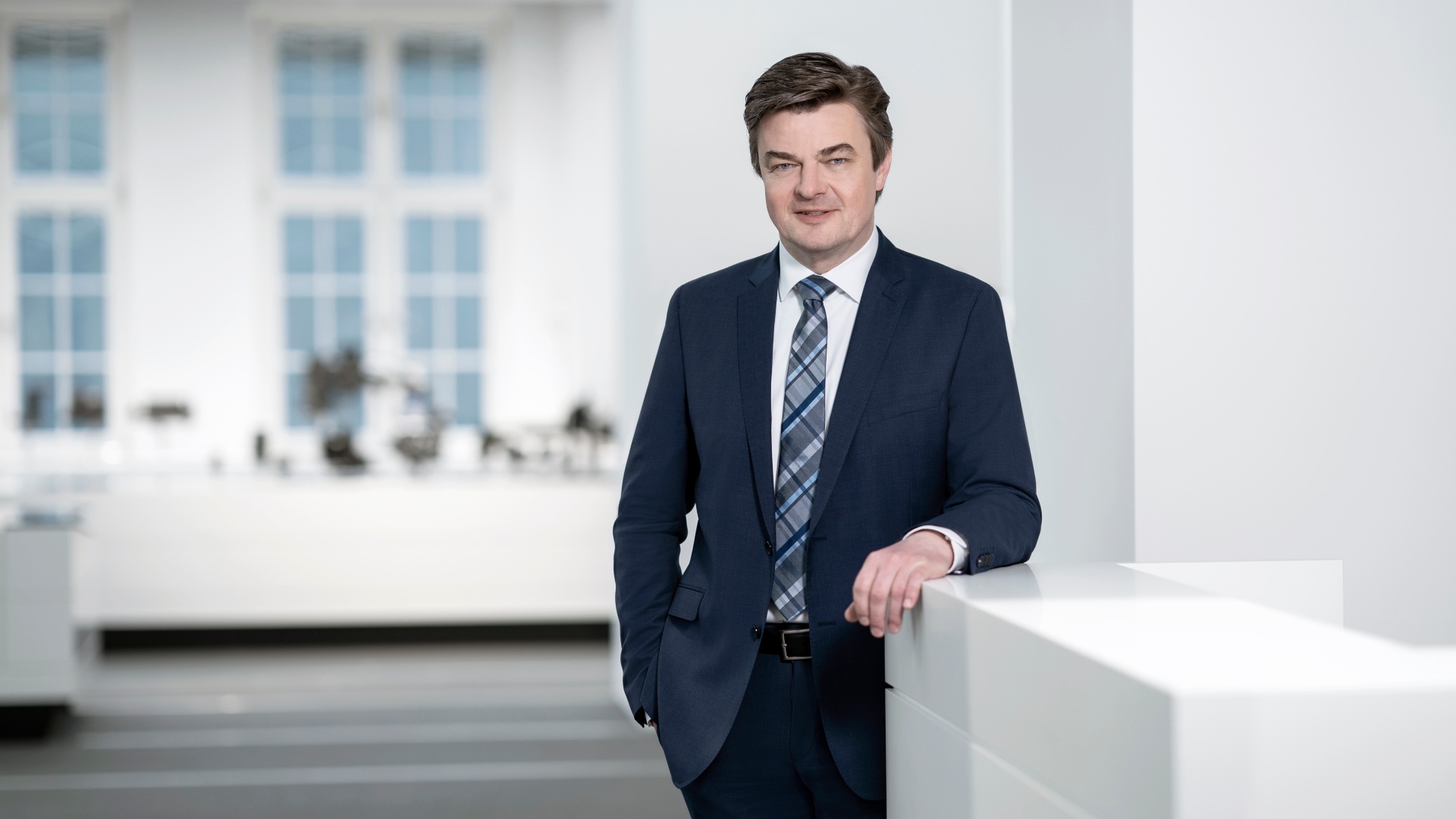
The Rail division has an especially important part to play, because railways, trams and metro systems are key drivers of progress toward climate-friendly mobility.
How do you plan to achieve this?
Ralph Heuwing: We intend to halve our CO2 emissions in three ways: by using energy efficiently, by generating our own electricity and by purchasing renewable energy for our own production. To reach climate neutrality we plan to further increase the share of renewable energies we purchase, beyond our current annual targets. Unavoidable greenhouse gas emissions will be offset by purchasing high-quality carbon offset certificates – although we are currently exploring the possibility of developing our own climate projects, too. We also plan to extend our climate strategy to cover our value chains, requiring our suppliers to meet sustainability criteria.
How do you reinforce the sustainability of Knorr-Bremse’s day-to-day operations?
Bernd Eulitz: Our Corporate Responsibility department takes the lead here, coordinating all our activities in a targeted way. It implements our commitment to doing business responsibly – a commitment that extends far beyond climate and environment protection to embrace values and principles around business and human rights as set out by the United Nations.
Ralph Heuwing: As a globally active business we are aware of our diversity, and this drives our commitment to promoting the personal development of each and every individual – and the decision taken this year to place even greater emphasis on the topic of diversity and equal opportunity as a whole. We use materiality analysis to fine-tune our approach to sustainability: This tried and trusted tool helps us determine which sustainability issues are especially important for Knorr-Bremse and need to be placed at the heart of our sustainability program.
What solutions does Knorr-Bremse offer for sustainable mobility?
Bernd Eulitz: Our ambition is to offer our customers products and systems that make rail and road transportation safer, more reliable and more sustainable. In this we are guided by the trends that are impacting society as a whole: the megatrends of urbanization, sustainability, digitization and mobility.
Jürgen Wilder: Even though rail travel, by its very nature, represents a climate-friendly alternative to private transport, it still offers considerable potential for further development. One example here is the modernization of regional trains – and indeed urban buses − which are normally diesel-powered. We have identified cost-effective ways of converting these vehicles to hybrid or pure electric systems. We’re also setting a new industry benchmark, in conjunction with our customer Alstom, with the braking and HVAC systems we are supplying for France’s new TGV 2020 high-speed trains. The end client, French rail operator SNCF, had set extremely stringent requirements, not least in terms of sustainability. We were able to meet these requirements in full.
Peter Laier: In view of global technology trends, in the Truck division too we were quick to shift the focus of our entire product development effort to low energy consumption and efficiency – and this has delivered tangible results. Lightweight design of systems and components helps to reduce fuel consumption, for example. And electric mobility offers enormous potential for commercial vehicle systems.
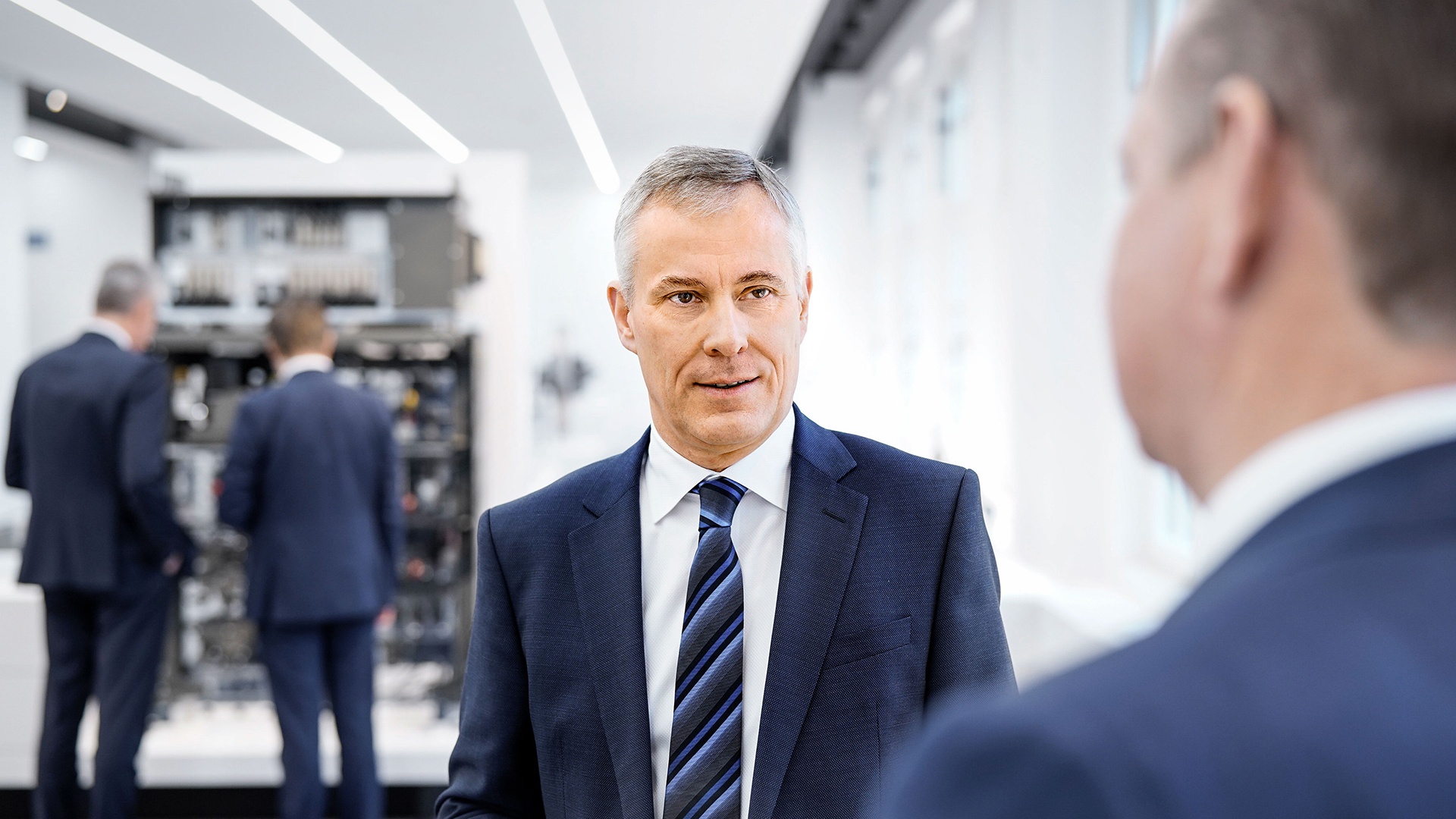
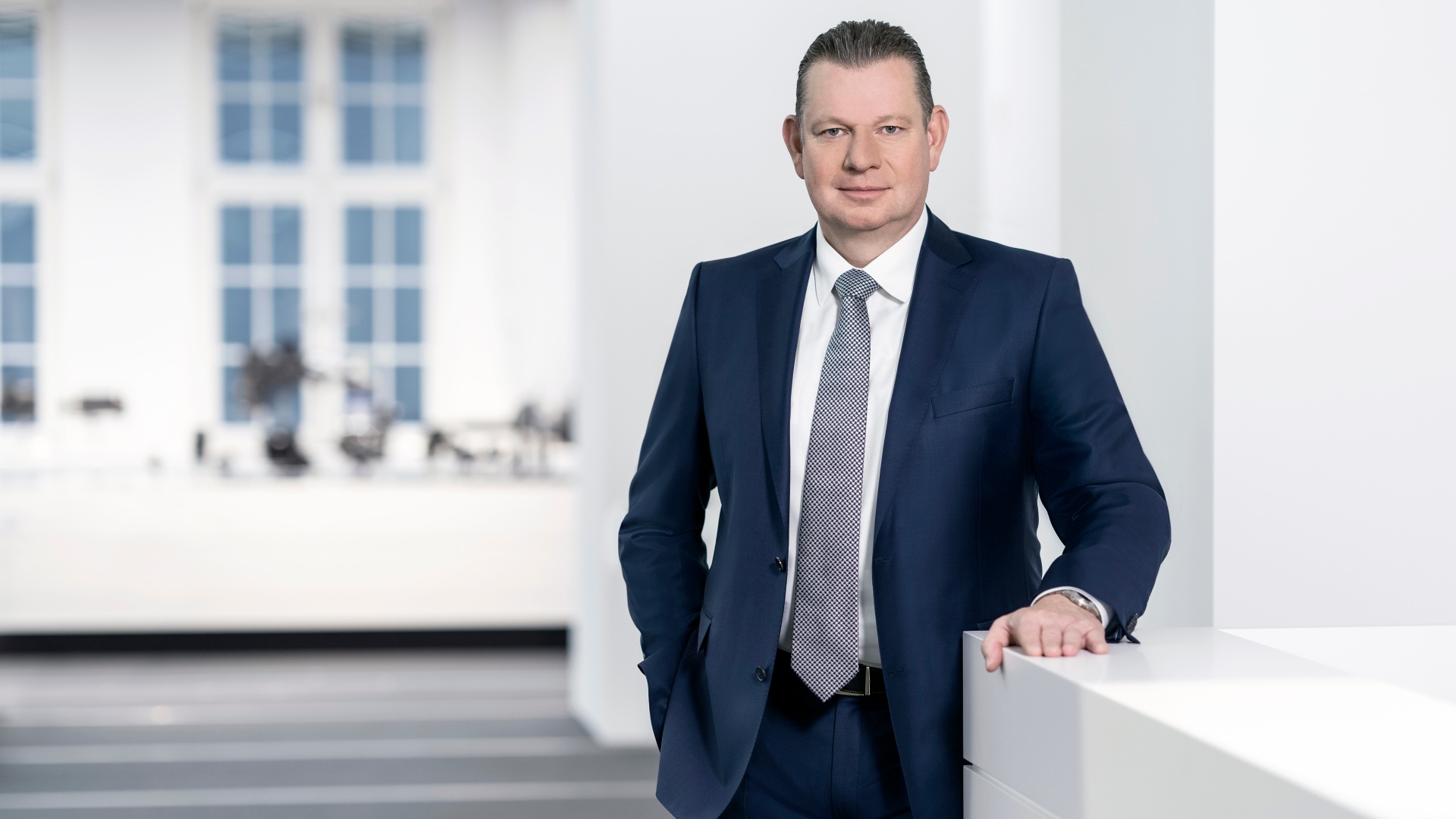
For individual companies the research and development costs are virtually impossible to bear. Which is why we are open to new cross-sector partnerships − and new products.
Conserving natural resources is central to the concept of sustainability. What advances does Knorr-Bremse plan to make with respect to the circular economy and recycling?
Ralph Heuwing: Sustainability clearly doesn’t end at the factory gates. Our products should be sustainable throughout their life cycle – and beyond it, too. This underpins our commitment to the idea of the circular economy. One of its key elements is remanufacturing, that is to say, the reconditioning of old and used products. In concrete terms we remanufacture brake components which are then reassembled and reused, saving valuable raw materials and energy. Our Liberec plant specializes in this process.
Bernd Eulitz: These examples show how seriously we take the global call for sustainability. And with renowned rating agencies such as ISS-oekom and EcoVadis repeatedly recognizing our commitment to greater sustainability, we can tell we’re on the right track.